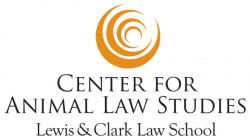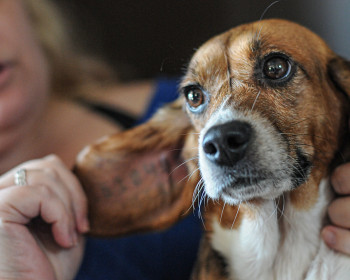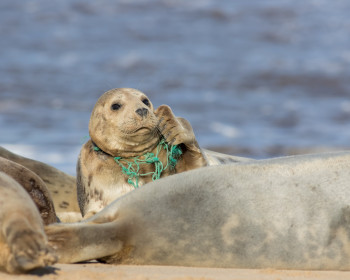The Lasting Legacy of Steven M. Wise (1950-2024)
Professor Joyce Tischler reflects on the life and legacy of animal rights law champion, Steve Wise
Open gallery
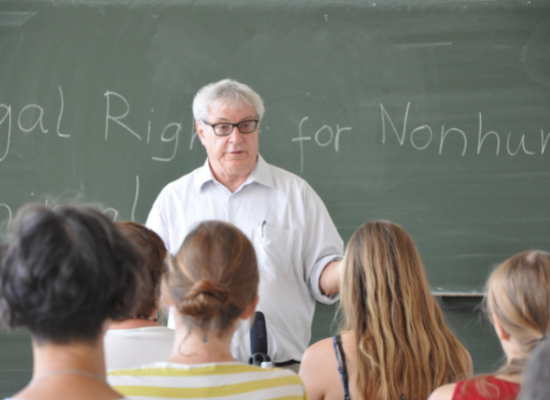
Very few people have the opportunity to leave a legacy that will influence future generations. Doing so requires a combination of qualities, including brilliance of mind, stamina, perseverance, unparalleled focus, and passion. Steve Wise created such a legacy. It did not just happen to him. He made it happen as he dug deeper and deeper into his lovely obsession with trying to figure out how to create legal rights for nonhuman animals, a class of individuals who have never before held legal rights, and the world is forever changed by his remarkable achievements.
Oftentimes, I do not remember when or how I met people, but I clearly remember when, where and how I met Steve: Thanksgiving weekend, 1981, New York City. We were both attending the very first animal rights law conference. After a lifetime of feeling alone in my beliefs about our duty to adequately protect animals, I walked into a room and it felt like I was coming out of a dark cave into the sunlight. Before me were 60 people, 30 of them lawyers, and they all shared my values. I had found a home with other early animal rights lawyers and activists who were committed to protecting animals and establishing their legal rights.
And, there was Steve, an engaging, friendly, disheveled young lawyer from Boston, who charmed us all with his dry, self-deprecating sense of humor and impish grin. His intelligence and energy were obvious, as he told us about taking on veterinary malpractice cases and talking to the local media about the concept of animal rights. This was long before it was considered acceptable or even sane to pursue lawsuits on behalf of animals. Steve and I quickly became colleagues and friends.
Soon after that 1981 conference, we formed a national board of directors for the fledgling Animal Legal Defense Fund (ALDF), the nonprofit litigation organization that I had co-founded in 1979, and of course, we wanted Steve to be on our board. I was the Executive Director of ALDF for 25 years, and for ten of those years, Steve served as the President of the Board. We grew up together there, spending countless hours on long distance phone calls, dreaming, planning, and discussing how to create lawsuits and a movement of lawyers who would devote their careers to protecting animals.
There came a time when Steve said to the ALDF Board that he could no longer work on the animal “protection” lawsuits. For him, it felt like he was nibbling around the edges. He wanted to dive deeper and dismantle the system that viewed animals, not as sentient beings, but as “things.” So, while I stayed on building ALDF and the movement, Steve founded the Nonhuman Rights Project (NhRP) and devoted virtually all of his waking hours to the creation of legal rights for here-to-fore rightless beings.
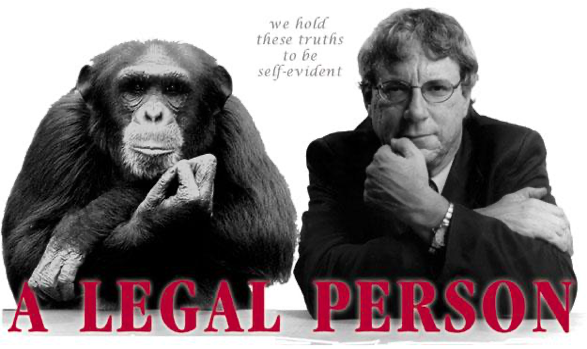
I was lucky enough to have a front row seat and watch his professional evolution over a period of decades. I eagerly read his many law review articles, often when they were in draft form, and we would discuss his thought process as it was happening. Later came his widely acclaimed books, such as Rattling the Cage: Toward Legal Rights for Animals and Drawing the Line: Science and the Case for Animal Rights. I watched, in awe, as he assembled the pieces, bit by bit, to translate a purely philosophical concept into on-the-ground litigation. Doing so is a tremendously difficult and unforgiving task, one that cannot be truly appreciated unless you have tried the endeavor yourself.
I saw Steve transform on a personal level too, from that novice Boston private practitioner into an international figure, a legal scholar who earned the respect and friendship of renowned legal scholars Lawrence Tribe, Cass Sunstein, Martha Nussbaum, and others. His friends and colleagues also included internationally known animal protection icons, like Jane Goodall and Cynthia Moss. Steve’s influence reached well beyond the burgeoning field of animal law, to policymakers, leaders, students, activists, artists, media and film makers on a global level. He even appeared in a memorable and hilarious interview with Stephen Colbert on The Colbert Report. He motivated countless lawyers to become animal lawyers, a concept that was just being born when we walked into that conference room in New York City in 1981.
Nobody else has come close to Steve’s accomplishments in developing animal rights law. He spent many thousands of hours researching and writing to develop his theories and then bringing them to life in the American legal system. No one else has taken the philosophy of animal rights and translated it into a practical cause of action in the courtroom. No one else has done that.
And, still, despite his international success and recognition, he remained Steve, my beloved friend of 42 years, forever unwilling to comb his hair (except when he appeared on The Colbert Report), his shirttail showing, his tie crooked, and so sweet and funny.
We are honored that Steve shared his talents with our students at Lewis & Clark Law School, teaching as an Adjunct Professor in our Animal Law Program for more than two decades. His grateful admirers include our Lewis & Clark community, as well as lawyers and law students from around the globe, who were inspired by his vision to challenge the legal status quo and push the law to treat animals as the remarkable individuals who they are. Steve built something that can’t be stopped; he laid a very solid foundation for those who will come after him, and an extraordinary body of animal rights law scholarship.
The movement will not be the same without Steve. On behalf of myself and all of us at the Center for Animal Law Studies, thank you Steve; we are honored to have known you, worked with you, and been inspired by you as we watched you lead NhRP and empower legal professionals all over the world to carry on your remarkable legacy.
Ti amo amico mio.
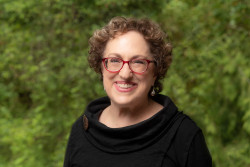
The Center for Animal Law Studies (CALS) was founded in 2008 with a mission to educate the next generation of animal law advocates and advance animal protection through the law. With vision and bold risk-taking, CALS has since developed into a world-renowned animal law epicenter. CALS’ Alumni-in-Action from over 25 countries are making a difference for animals around the world. CALS is a nonprofit organization funded through donations and grants.
More Center for Animal Law Studies Stories
Center for Animal Law Studies is located in Wood Hall on the Law Campus.
MSC: 51
email cals@lclark.edu
voice 503-768-6960
Center for Animal Law Studies
Lewis & Clark Law School
10101 S. Terwilliger Boulevard MSC 51
Portland OR 97219
